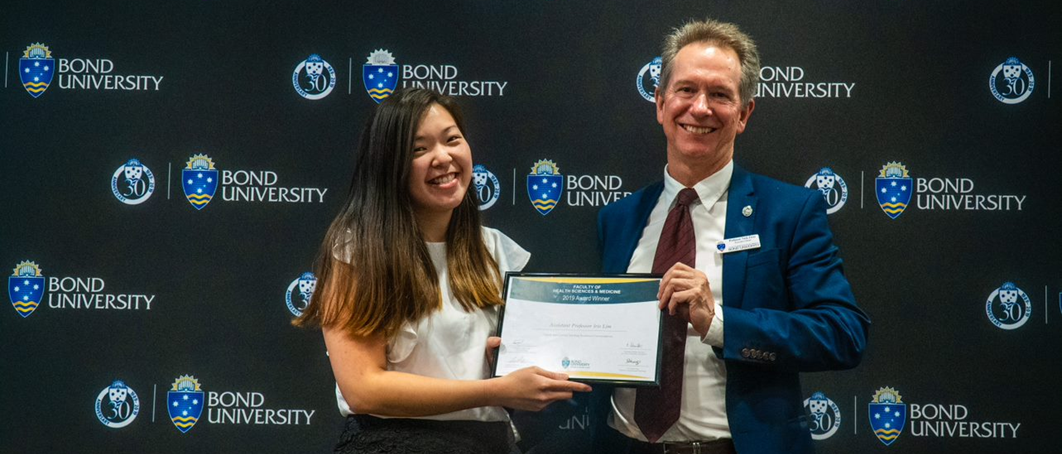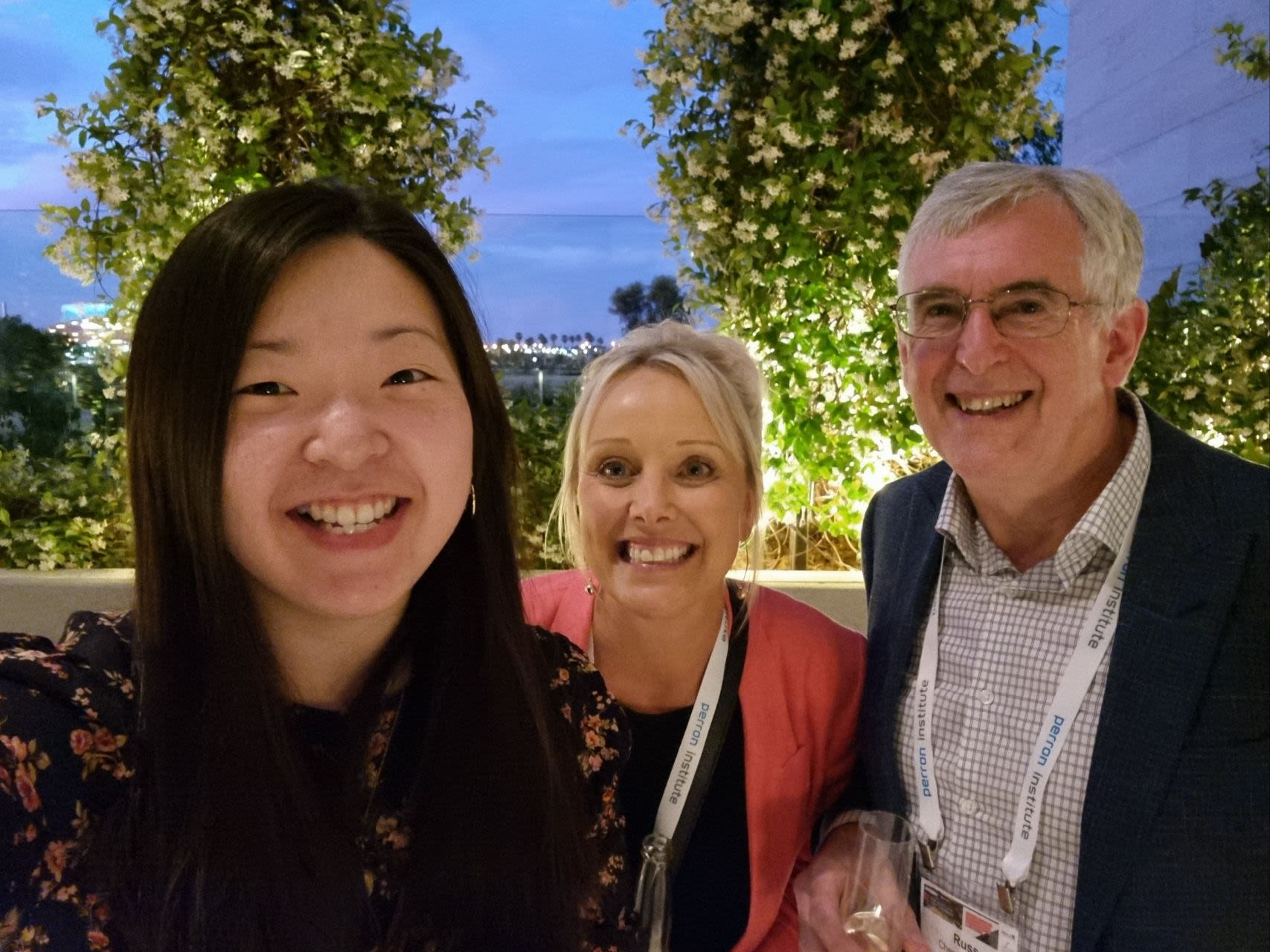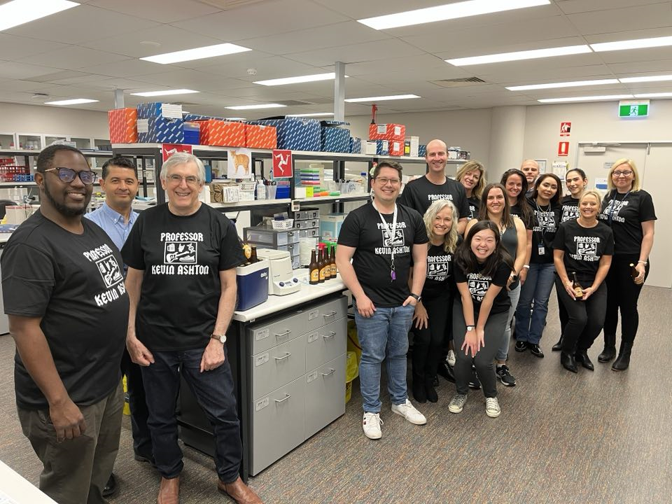Destined to be different
Dr Iris Lim overcame doubts and expectations to carve a career in STEM
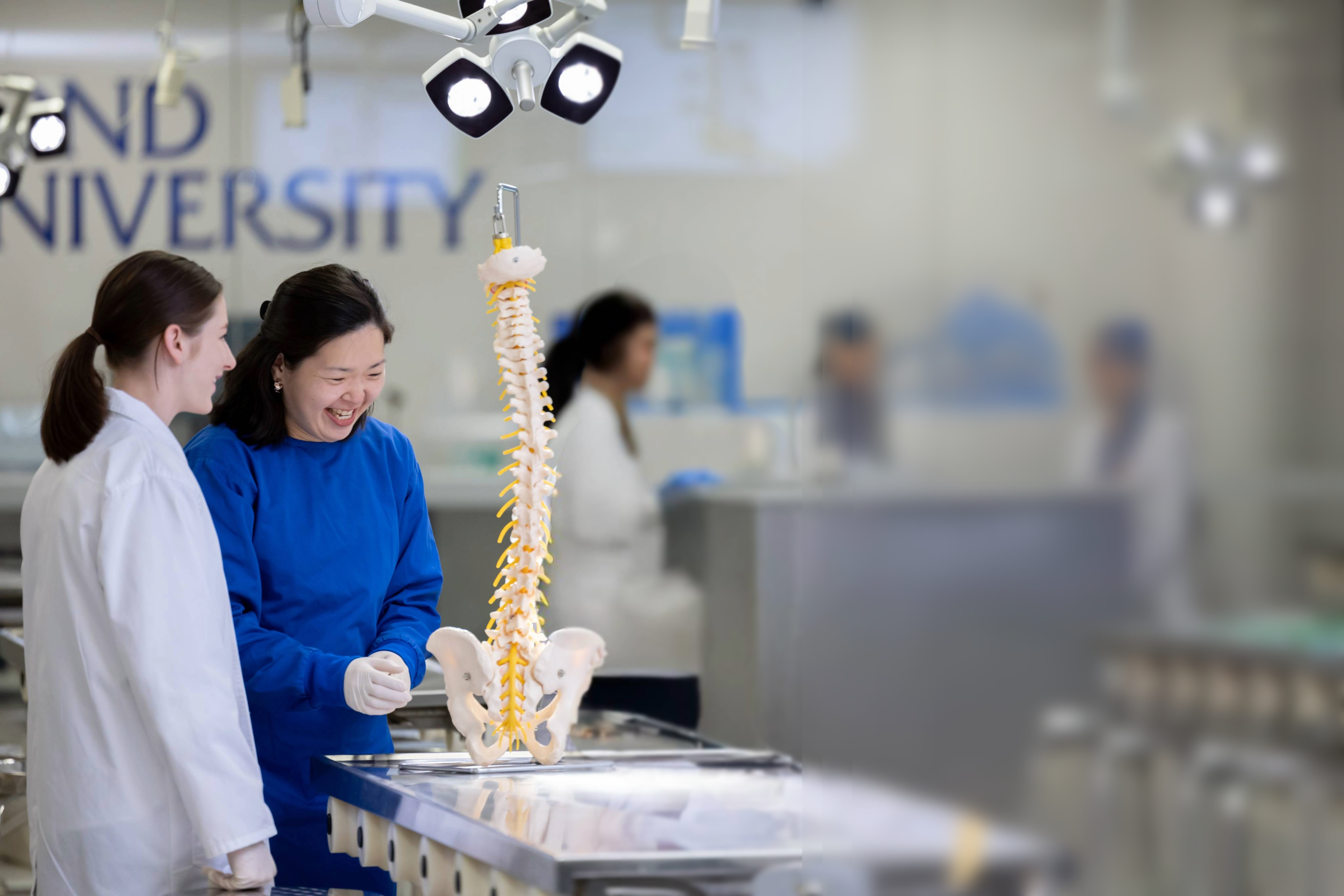
Destined to be different
Dr Iris Lim overcame doubts to carve a career in STEM
By Felicity Ripper
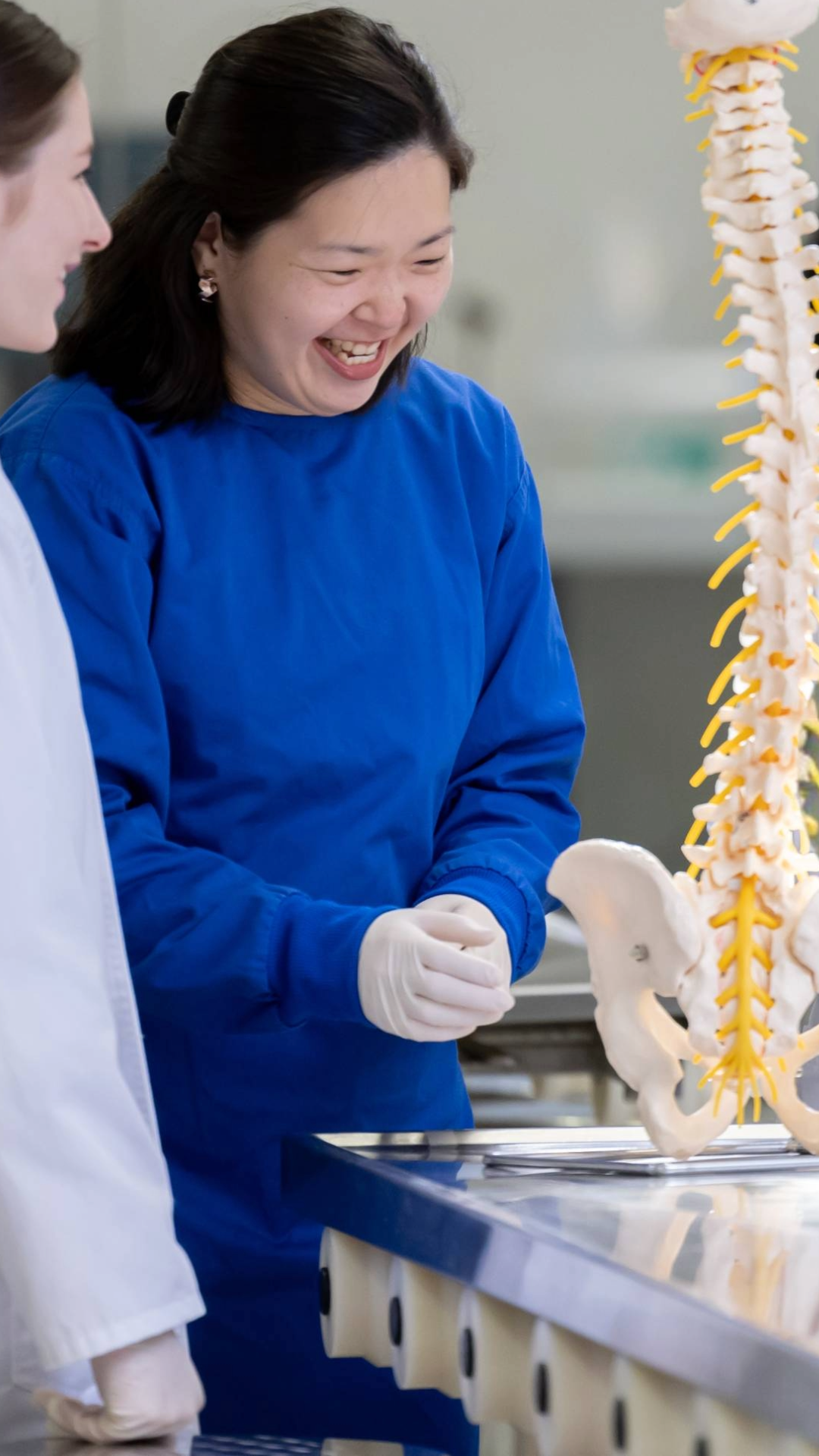
Dr Iris Lim is an Assistant Professor in Biomedical Science at Bond University and a researcher with a specialised focus on the physiology and pharmacology of the lower urinary tract, particularly the ureter and urethra. She also studied at Bond, completing a Bachelor of Biomedical Sciences and PhD. But the coastal campus was on her radar much earlier.
Dr Iris Lim’s journey to becoming a researcher wasn’t clear-cut. Growing up in Malaysia, she felt like success was defined by becoming a lawyer, medical doctor, engineer or accountant. “My parents have been supportive of all my choices but there were unspoken expectations in my community,” she says. From a young age, she was resigned to the fact she would be a medical doctor, lest she disappoint those around her.
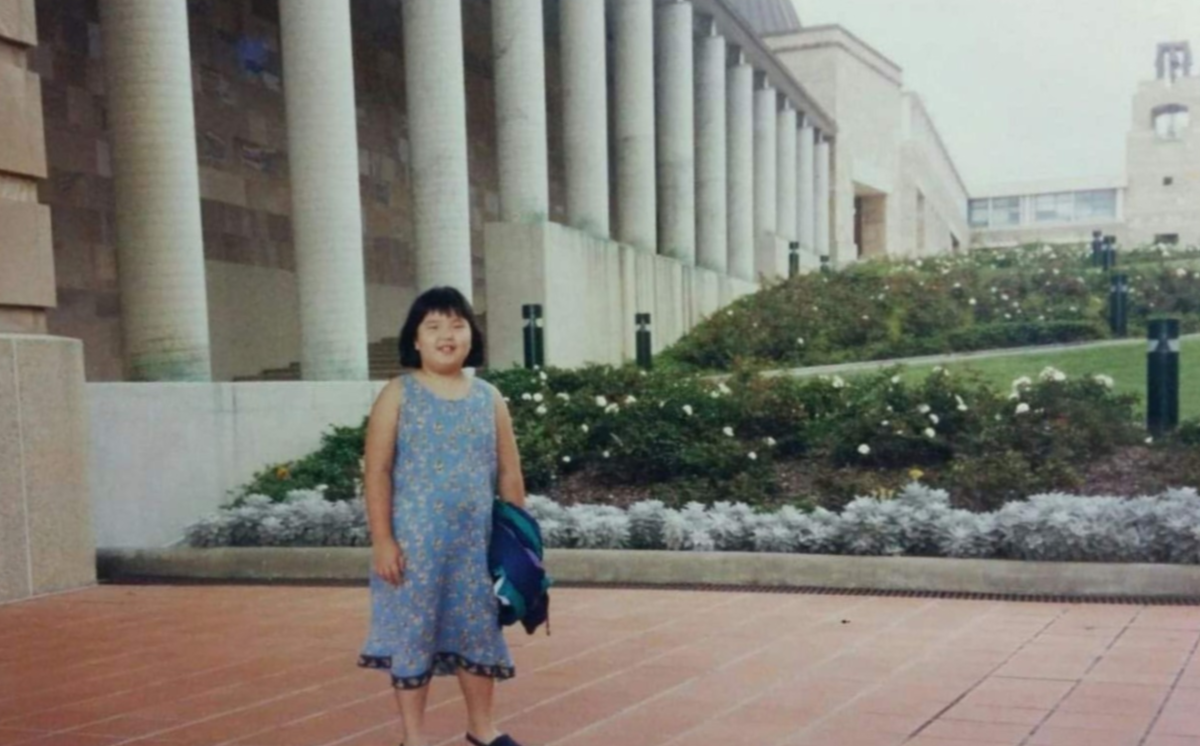

Standing under The Arch building as an eight-year-old, it was beyond Dr Lim’s comprehension that she would end up back at Bond University as a researcher. She was visiting the campus with her education agent father in 2000 when she was first exposed to the endless possibilities an education at Bond could offer — a foreshadowing of the transformative journey that awaited her. Dr Lim went on to graduate high school and decided the sunny campus on the Gold Coast would be where she would complete her biomedical science degree. Once she began at Bond, Dr Lim began to ponder all her career prospects.
“Before that, research felt like such a distant idea,” she says.
“No one talked about research growing up.”
“I remember trying to strike up conversations about it, particularly with my pharmacology lecturer Professor Russ Chess-Williams, and I became really interested in research in that area.”
Dr Lim completed her Bachelor of Biomedical Science degree at Bond in 2013 and spent a few semesters working as a research assistant. While she struggled with the uncertainty of choosing a path after her bachelor’s degree, she became increasingly drawn to research. But a voice in the back of her head was telling her that research was the inferior, safer option.
“During that time, I was having a conversation with my driving instructor back home and explaining my passion for research. He very dismissively told me that I could do so much more than just be in a lab,” Dr Lim says.
“That conversation has always stayed with me because it conveys how undervalued research is in the culture I grew up in.”
Despite her doubts and naysayers, Dr Lim followed her passion and chose the research route.
Kota Kinabalu
Bond University
Beyond the bubble of limitations
Dr Lim enjoyed her time as an assistant in the lab and decided to undertake a PhD with her pharmacology lecturer Professor Chess-Williams. She began to study potential drug treatments for helping patients pass kidney stones more effectively and with less pain.
Kidney stones are a health issue that affect about 10 to 15 per cent of people at some point. Dr Lim found it rewarding working towards answers for a large number of people who suffered often painful symptoms.
“Over the years, I developed expertise in this area and it’s something that I’m really passionate about,” she says.
Throughout her PhD, Dr Lim attended conferences, networked, practised her presentation skills and took on teaching opportunities. Fuelled by her curious nature, her passion for research grew beyond the lab.
“After all the time I spent not wanting to become a doctor, I became one. I got my PhD and became a doctor through research and I was doing something I actually enjoyed,”
“Once I graduated, new opportunities began to come my way.”
Dr Lim was appointed as an Assistant Professor in Biomedical Science at Bond University.
Beyond the bubble of limitations
Dr Lim enjoyed her time as an assistant in the lab and decided to undertake a PhD with her pharmacology lecturer Professor Chess-Williams. She began to study potential drug treatments for helping patients pass kidney stones more effectively and with less pain.
Kidney stones are a health issue that affect about 10 to 15 per cent of people at some point. Dr Lim found it rewarding working towards answers for a large number of people who suffered often painful symptoms.
“Over the years, I developed expertise in this area and it’s something that I’m really passionate about,” she says.
Throughout her PhD, Dr Lim attended conferences, networked, practised her presentation skills and took on teaching opportunities. Fuelled by her curious nature, her passion for research grew beyond the lab.
“After all the time I spent not wanting to become a doctor, I became one. I got my PhD and became a doctor through research and I was doing something I actually enjoyed,”
“Once I graduated, new opportunities began to come my way.”
Dr Lim was appointed as an Assistant Professor in Biomedical Science at Bond University.
Creativity in the classroom
As she taught biomedical science during the first few years of her academic career, Dr Lim developed a passion for inspiring learning. She realised she could apply her research skills to her classrooms and delved into education projects.
“One of my most fun and fulfilling projects has been, and continues to be, developing educational escape rooms,” she says.
Students are placed in a room and tasked with decoding clues to complete the game, gaining a deeper understanding of concepts along the way.
“This project has helped me combine my passion for research, my creativity and my teaching experience to create an impactful learning experience,” Dr Lim says.
“My goal is to make learning a bit more fun for my students, more accessible and more immersive.”
Her work in gamifying learning has already earned Dr Lim a swathe of awards as an early career educator including a 2024 Citation for Outstanding Contributions to Student Learning from the Australian Awards for University Teaching, the ASCEPT Gillian Shenfield Early Educator Award in 2024 from the Australasian Society of Clinical and Experimental Pharmacologists and Toxicologists, and Bond University Vice Chancellor's Award for Outstanding Contribution to Learning and Teaching (Early Career) in 2020.
Dr Lim received a Faculty Teaching Award for her work within the Faculty of Health Sciences & Medicine in 2019.
Dr Lim received a Faculty Teaching Award for her work within the Faculty of Health Sciences & Medicine in 2019.
Creativity in the classroom
As she taught biomedical science during the first few years of her academic career, Dr Lim developed a passion for inspiring learning. She realised she could apply her research skills to her classrooms and delved into education projects.
“One of my most fun and fulfilling projects has been, and continues to be, developing educational escape rooms,” she says.
Students are placed in a room and tasked with decoding clues to complete the game, gaining a deeper understanding of concepts along the way.
“This project has helped me combine my passion for research, my creativity and my teaching experience to create an impactful learning experience,” Dr Lim says.
“My goal is to make learning a bit more fun for my students, more accessible and more immersive.”
Her work in gamifying learning has already earned Dr Lim a swathe of awards as an early career educator including a 2024 Citation for Outstanding Contributions to Student Learning from the Australian Awards for University Teaching, the ASCEPT Gillian Shenfield Early Educator Award in 2024 from the Australasian Society of Clinical and Experimental Pharmacologists and Toxicologists, and Bond University Vice Chancellor's Award for Outstanding Contribution to Learning and Teaching (Early Career) in 2020.
Dr Lim received a Faculty Teaching Award for her work within the Faculty of Health Sciences & Medicine in 2019.
Dr Lim received a Faculty Teaching Award for her work within the Faculty of Health Sciences & Medicine in 2019.
Finding your people
Dr Lim credits her success as a young researcher and teacher to a supportive network. Speaking at a Bond University Women’s Network 'Women in Research' event in 2024, she gave special mention to “the best PhD supervisors” Centre for Urology Research Director Professor Chess-Williams and Professor in Biomedical Science Dr Donna Sellers, as well as mentor and Associate Professor of Physiology Dr Catherine McDermott.
“They are now my colleagues, and they have truly guided me,” she says. “It makes all the difference, particularly on challenging days, knowing that you are coming into a corridor of people who are supportive of you.”
Dr Lim says the wider Bond biomedical science team, her family (often via video calls), and exercise also helped her to find balance, strive for her goals and overcome perceived limitations.
“All of those limits that I felt early on were self-imposed based on what I thought people expected of me and my lack of self-confidence,” she says. “But those limits only remain if you allow them to.
“If I could go back to that conversation I had with my driving instructor, I would tell him that research is not just about lab work.
“Research, for me, will continue to be a journey of growing, learning and contributing to the world to make it a better place.”

Published on 15 January, 2024

Published on 15 January, 2024

Original thinking direct to your inbox

Stories from Bond


